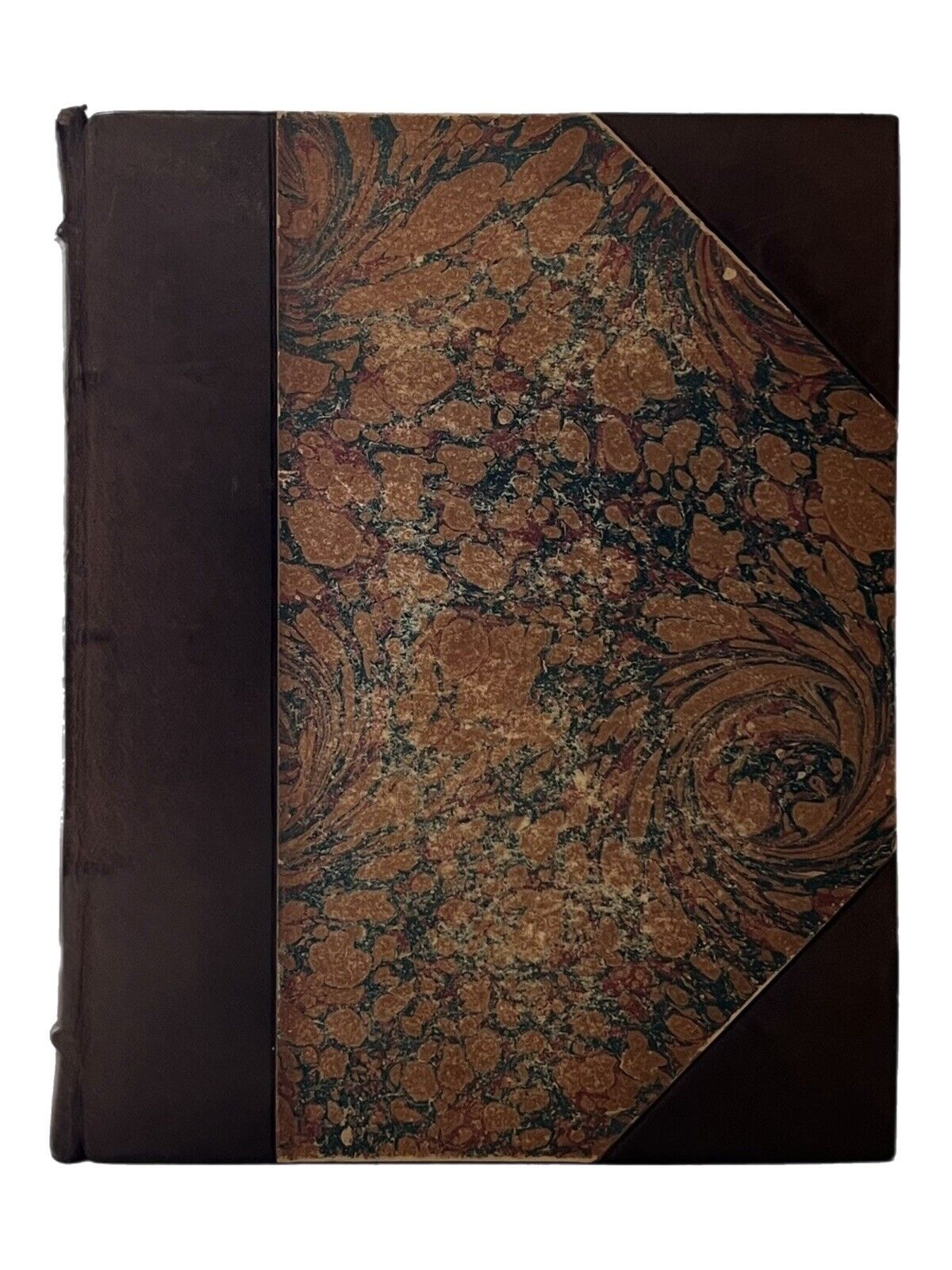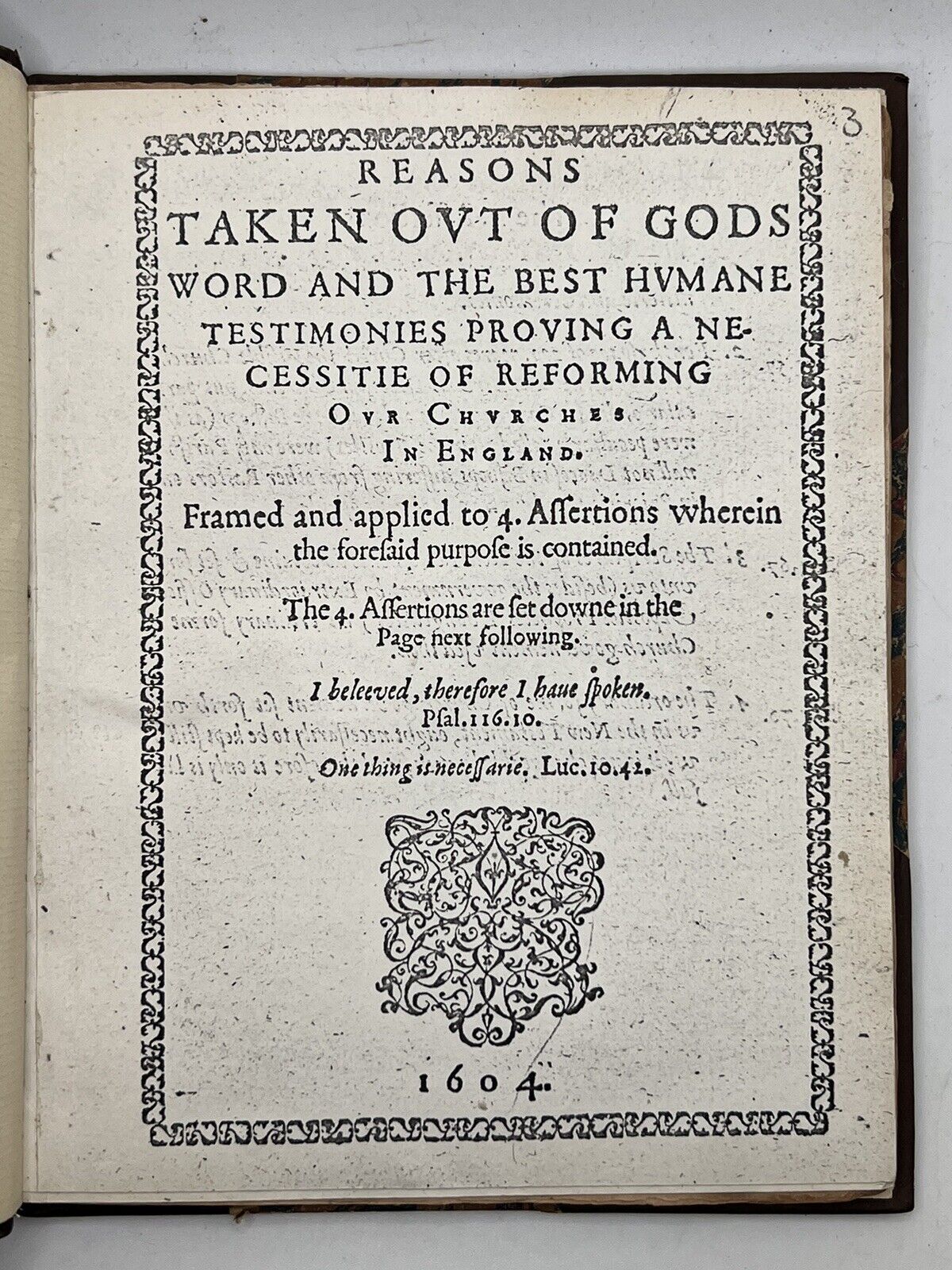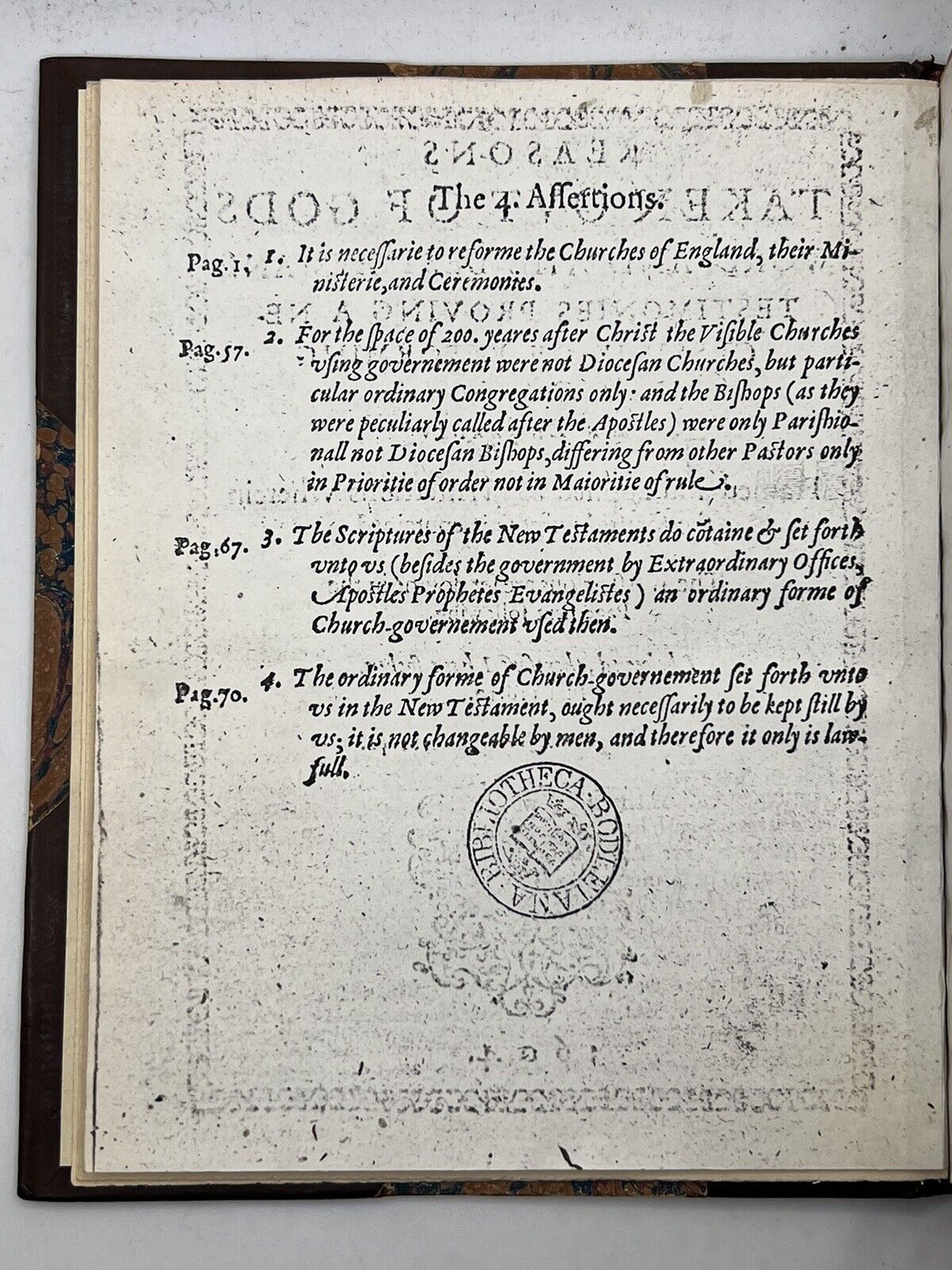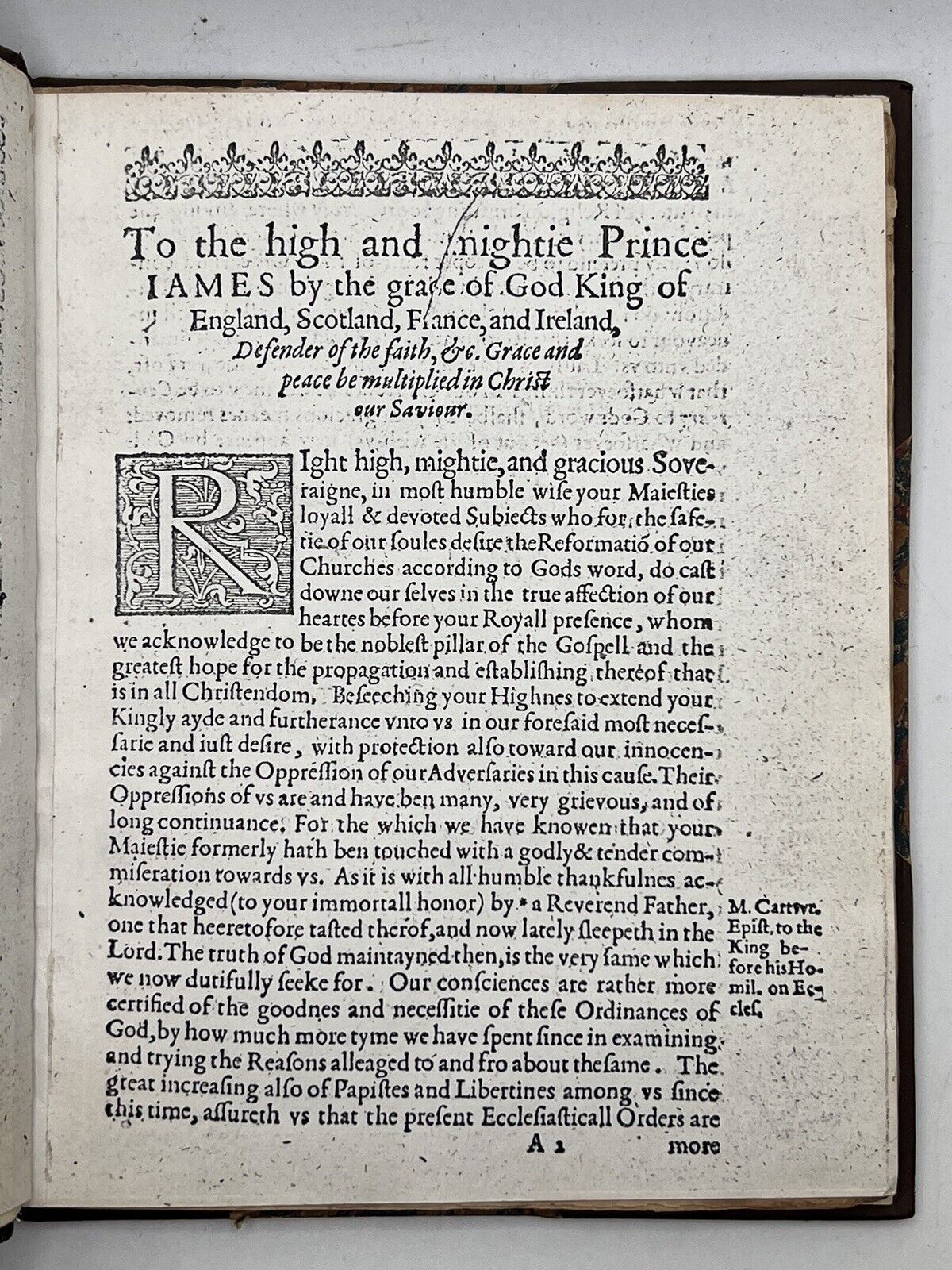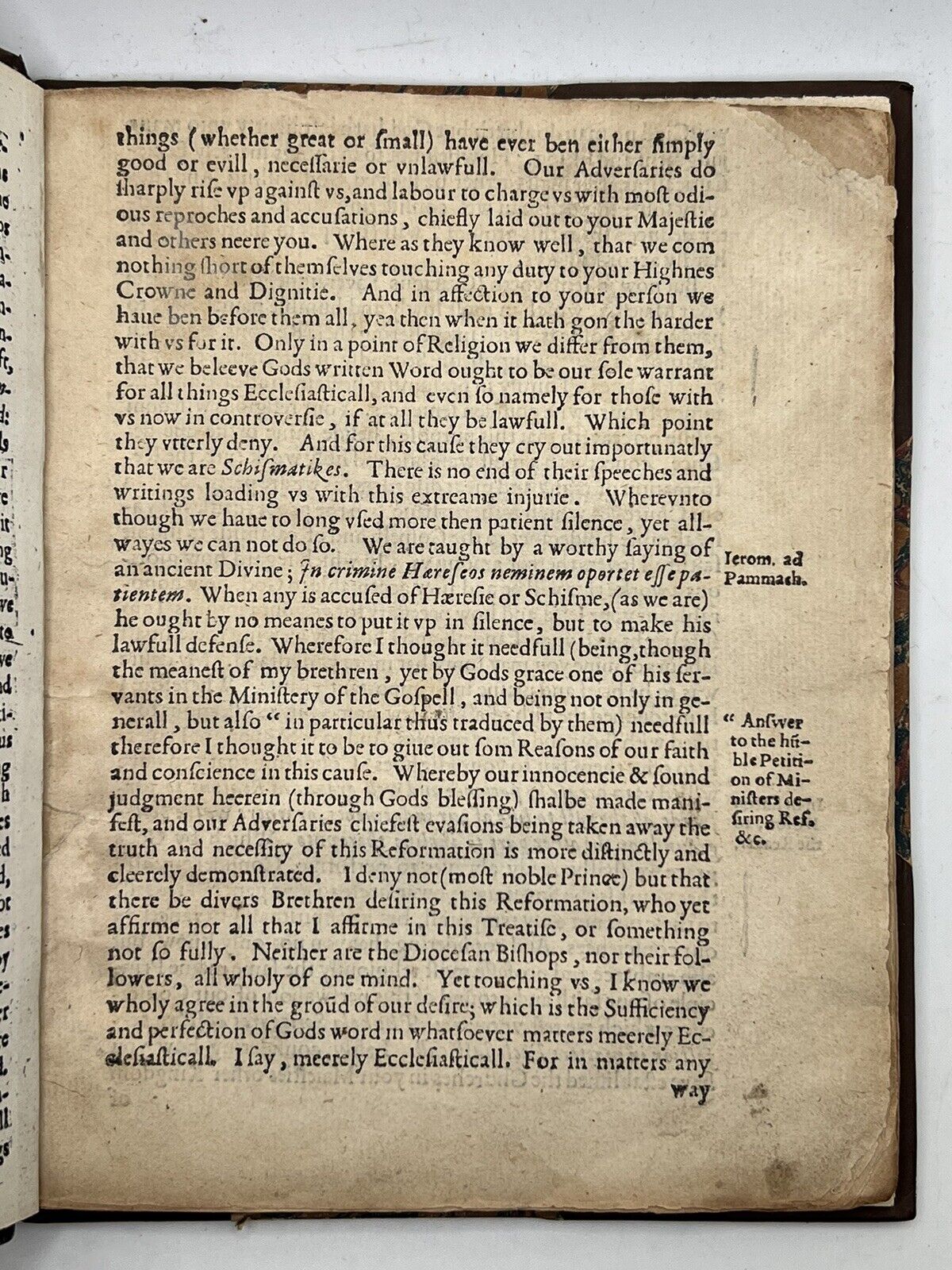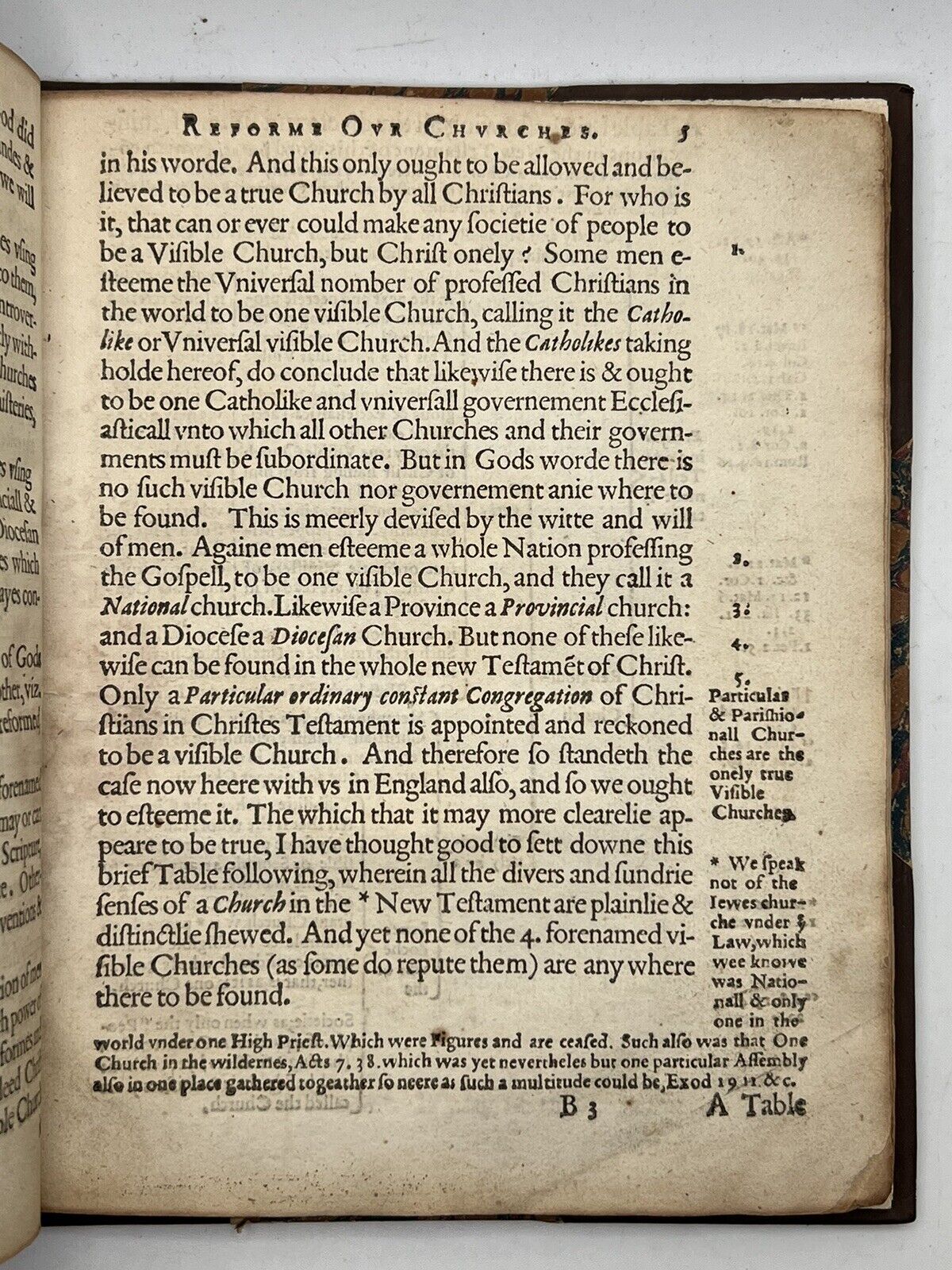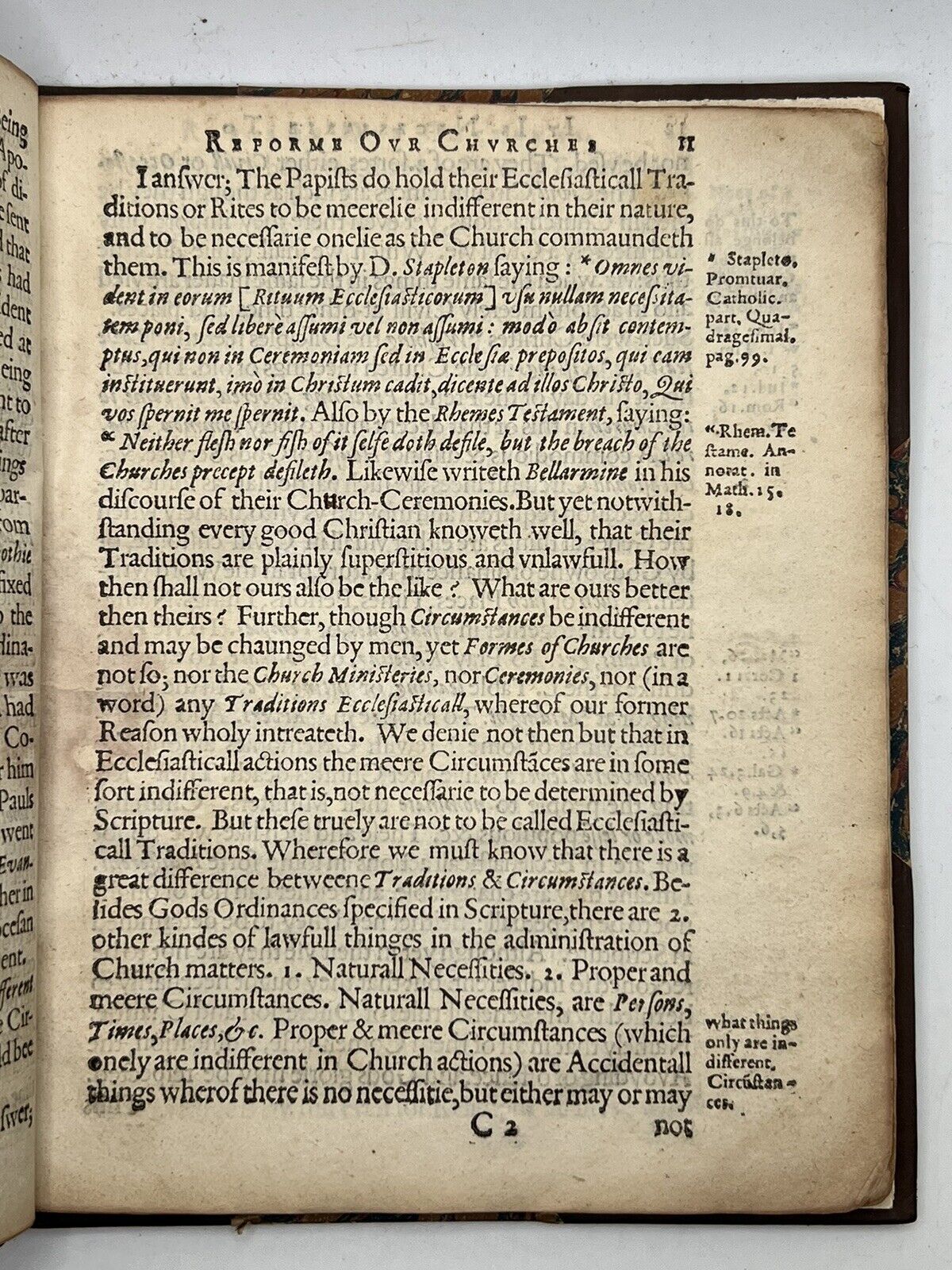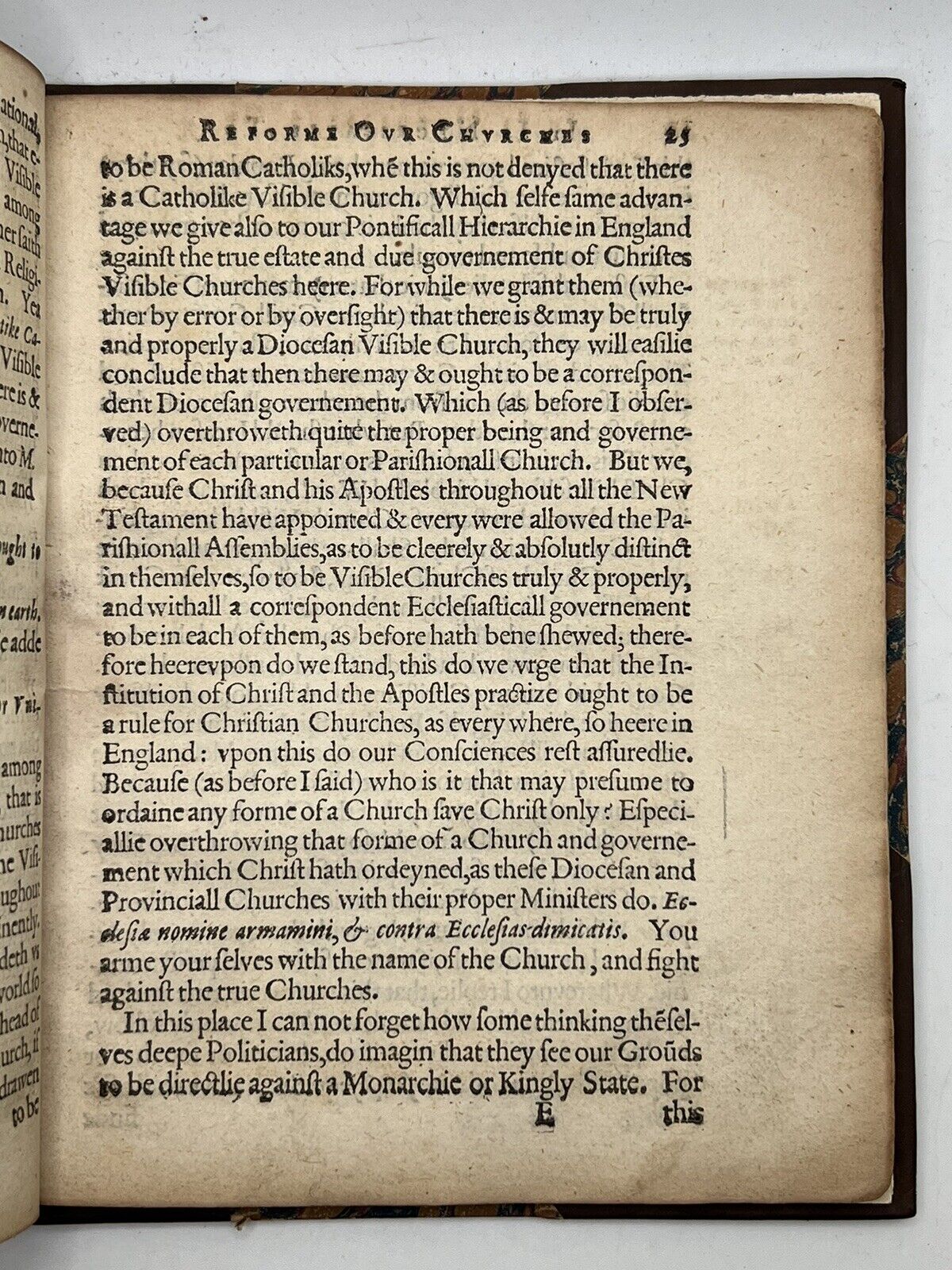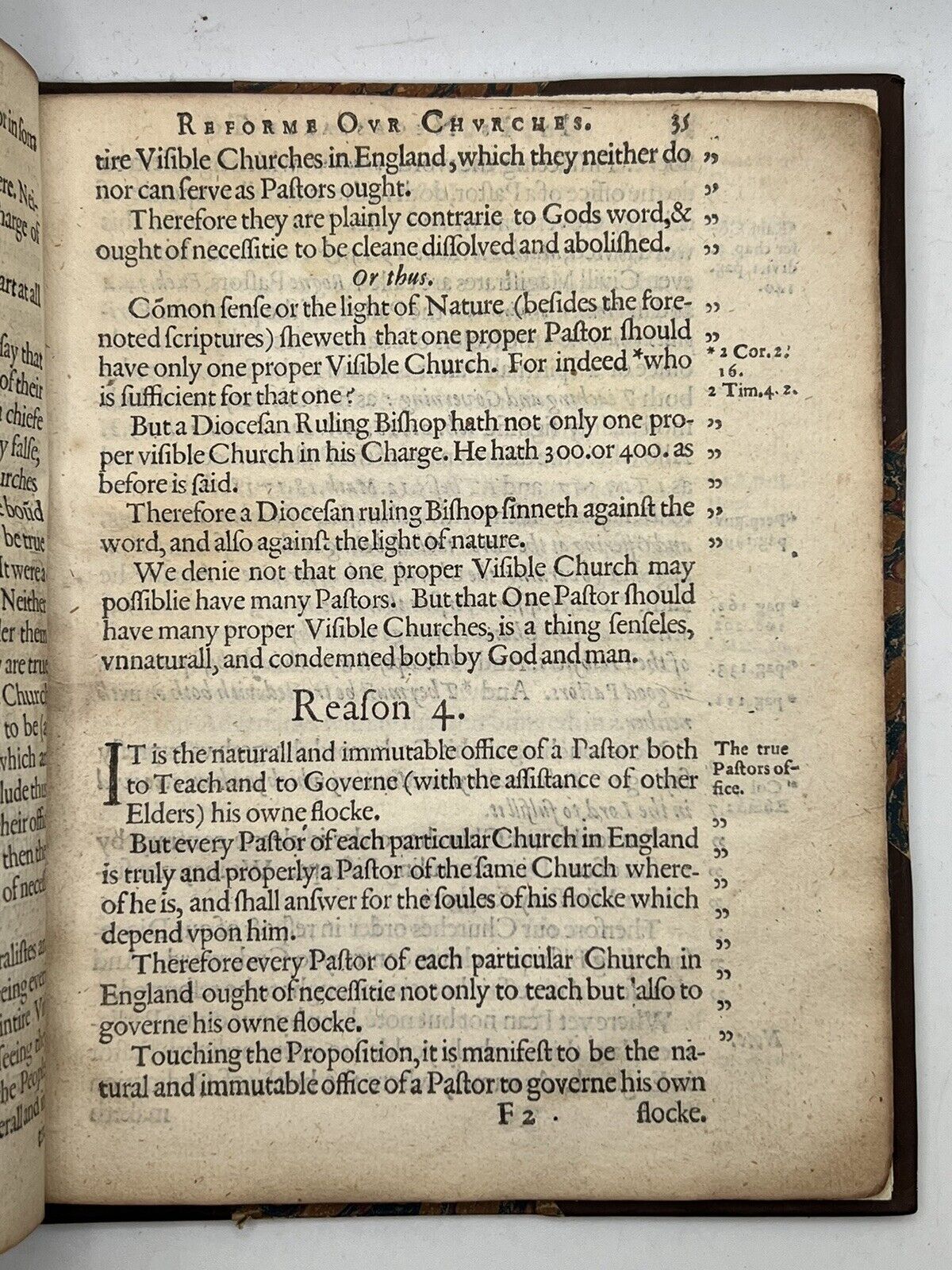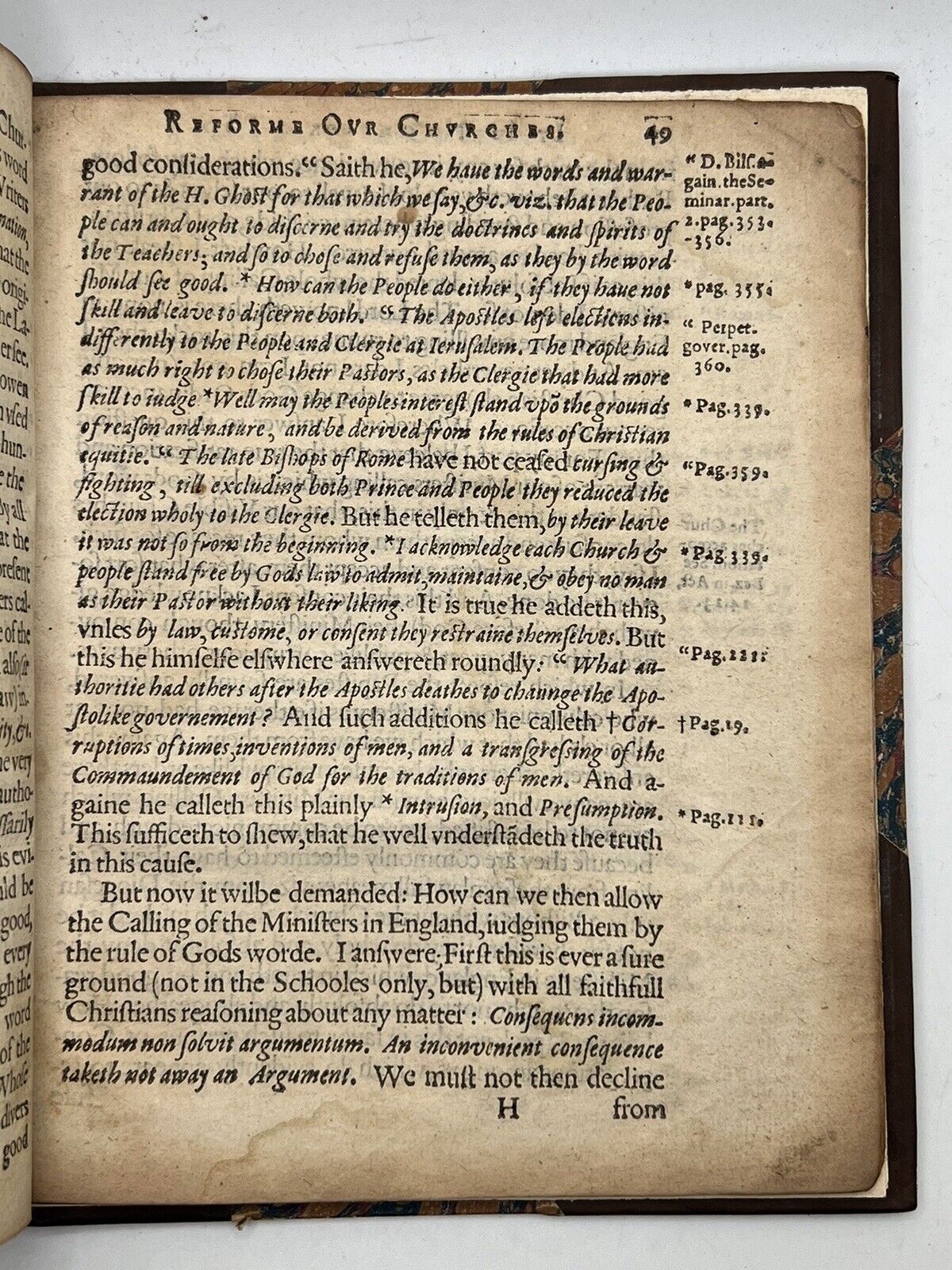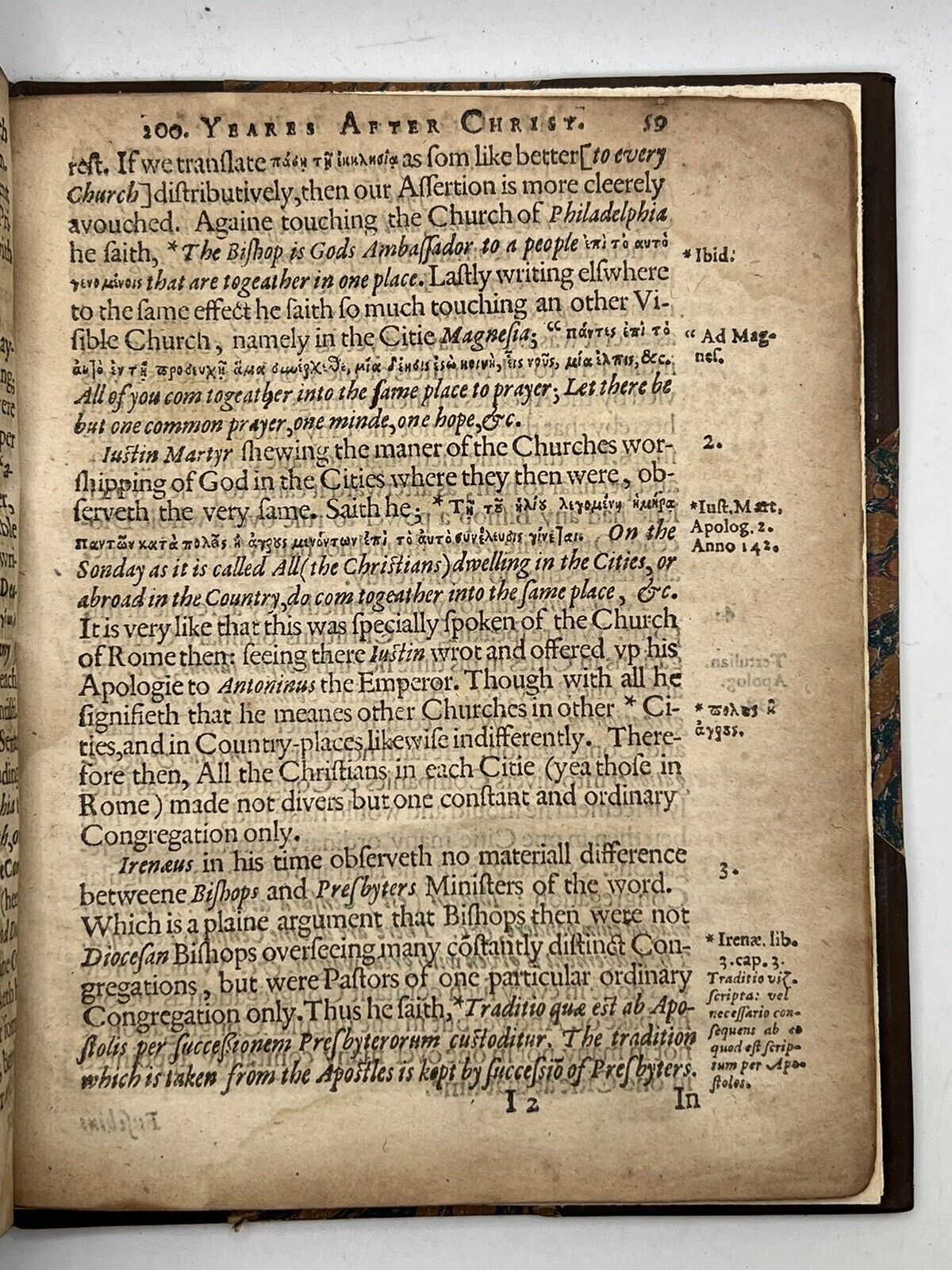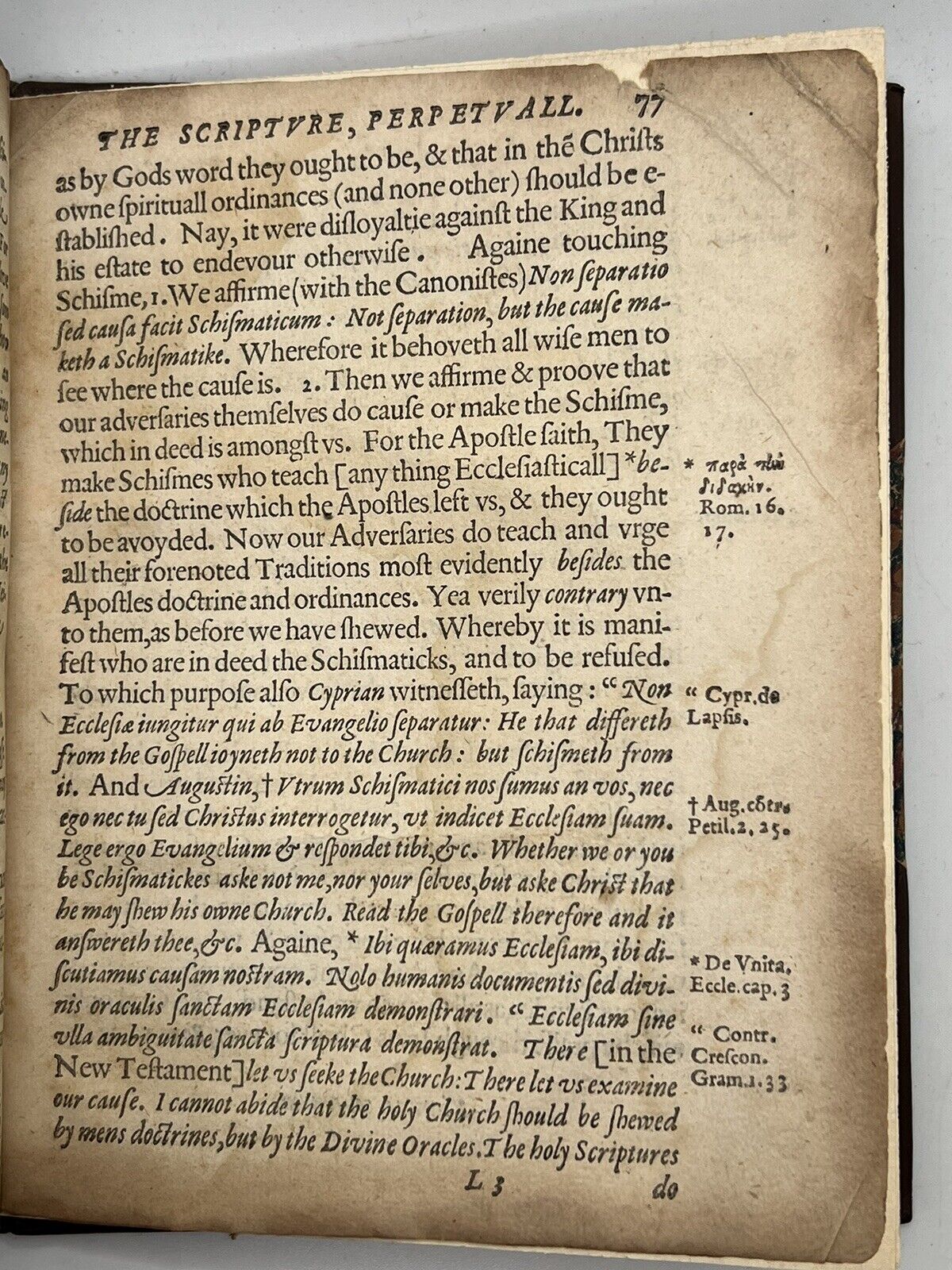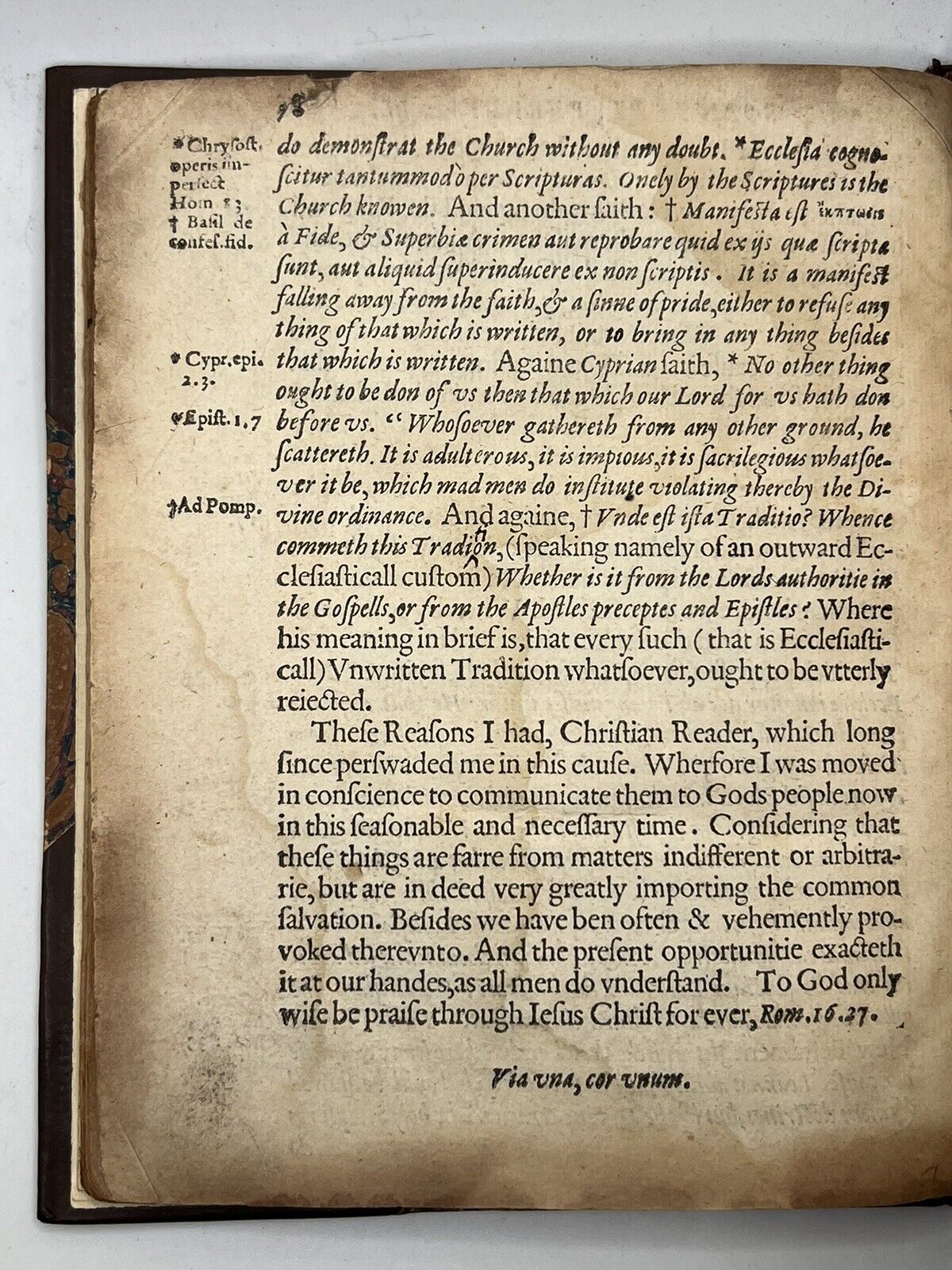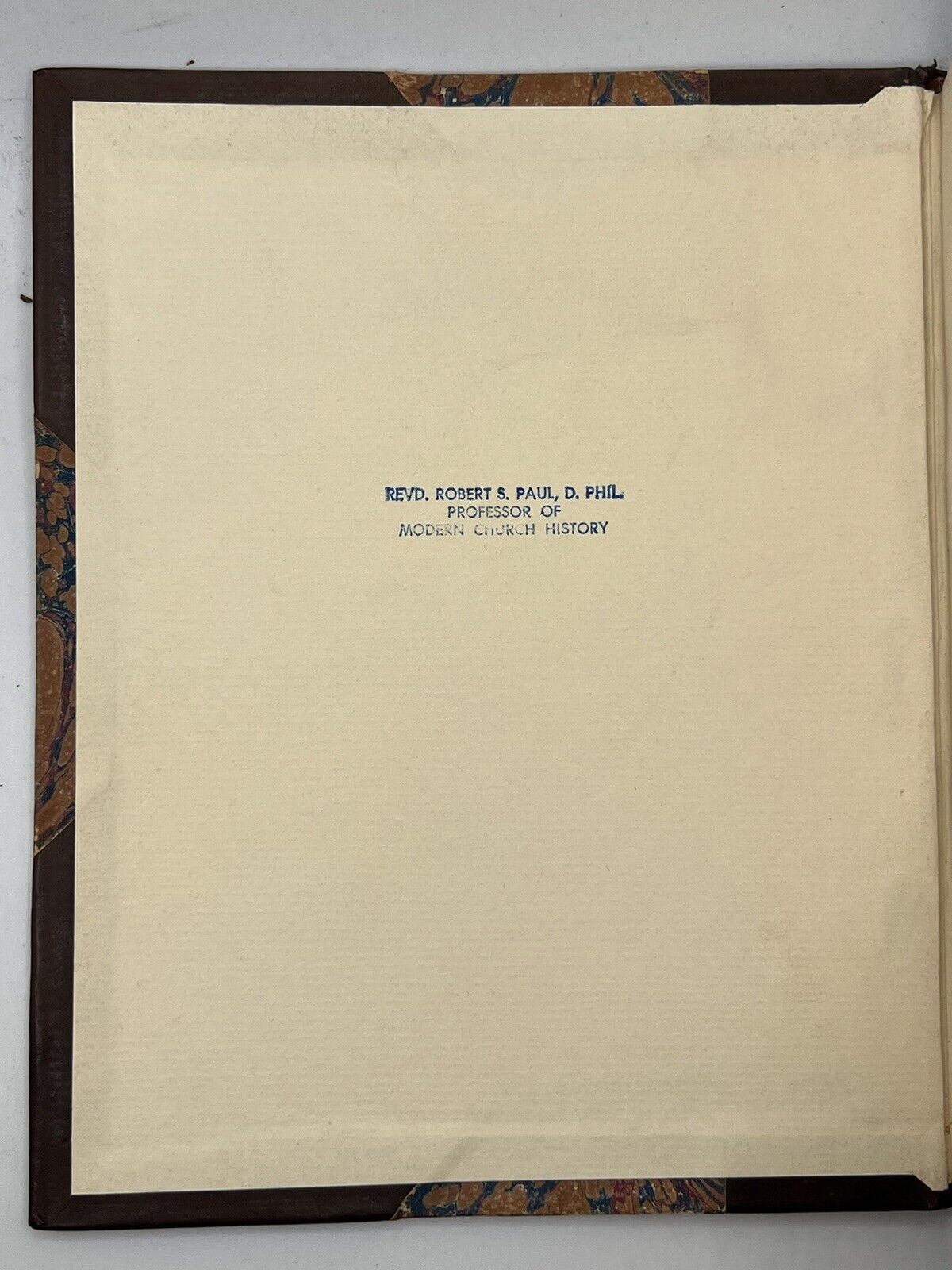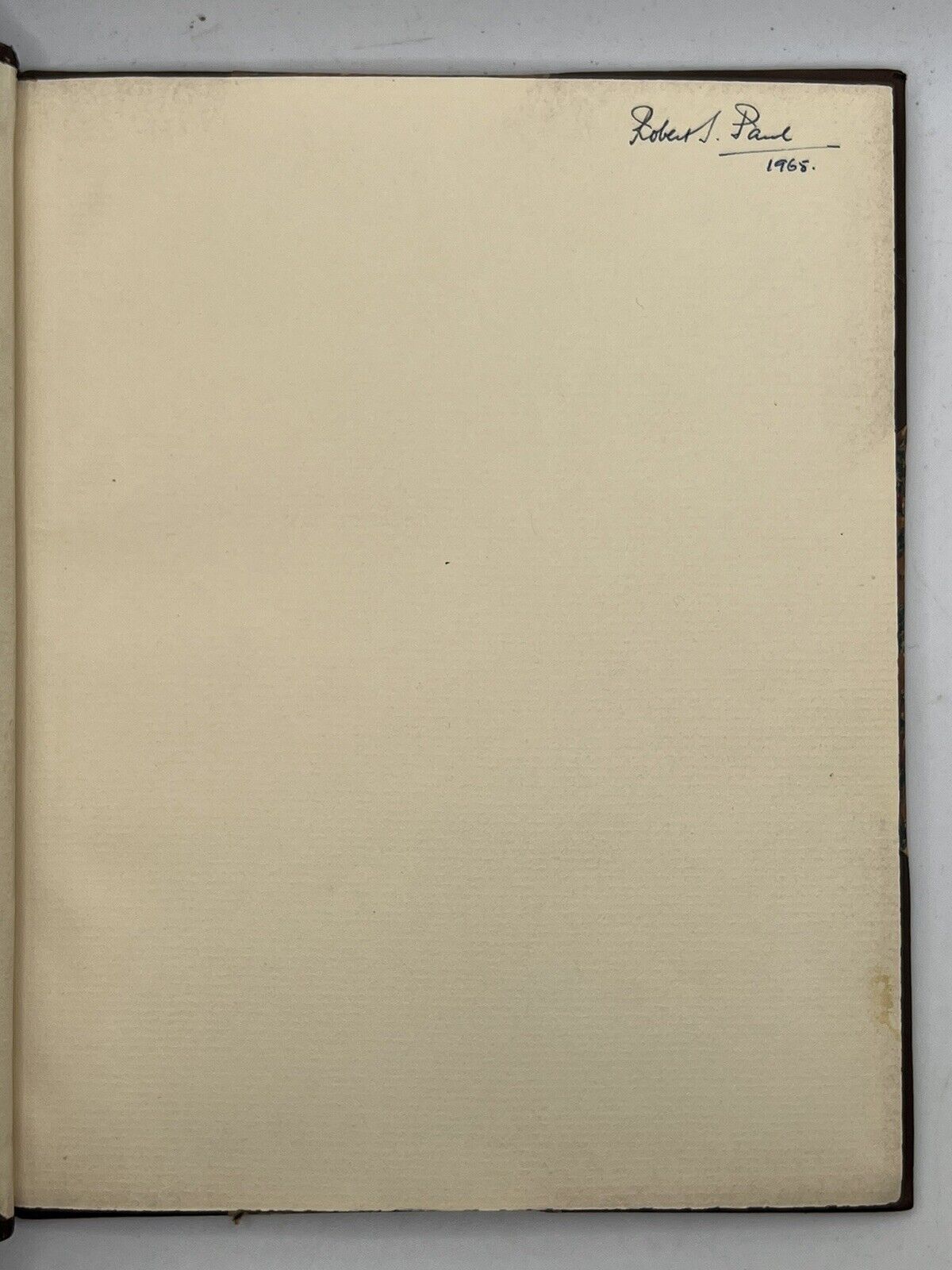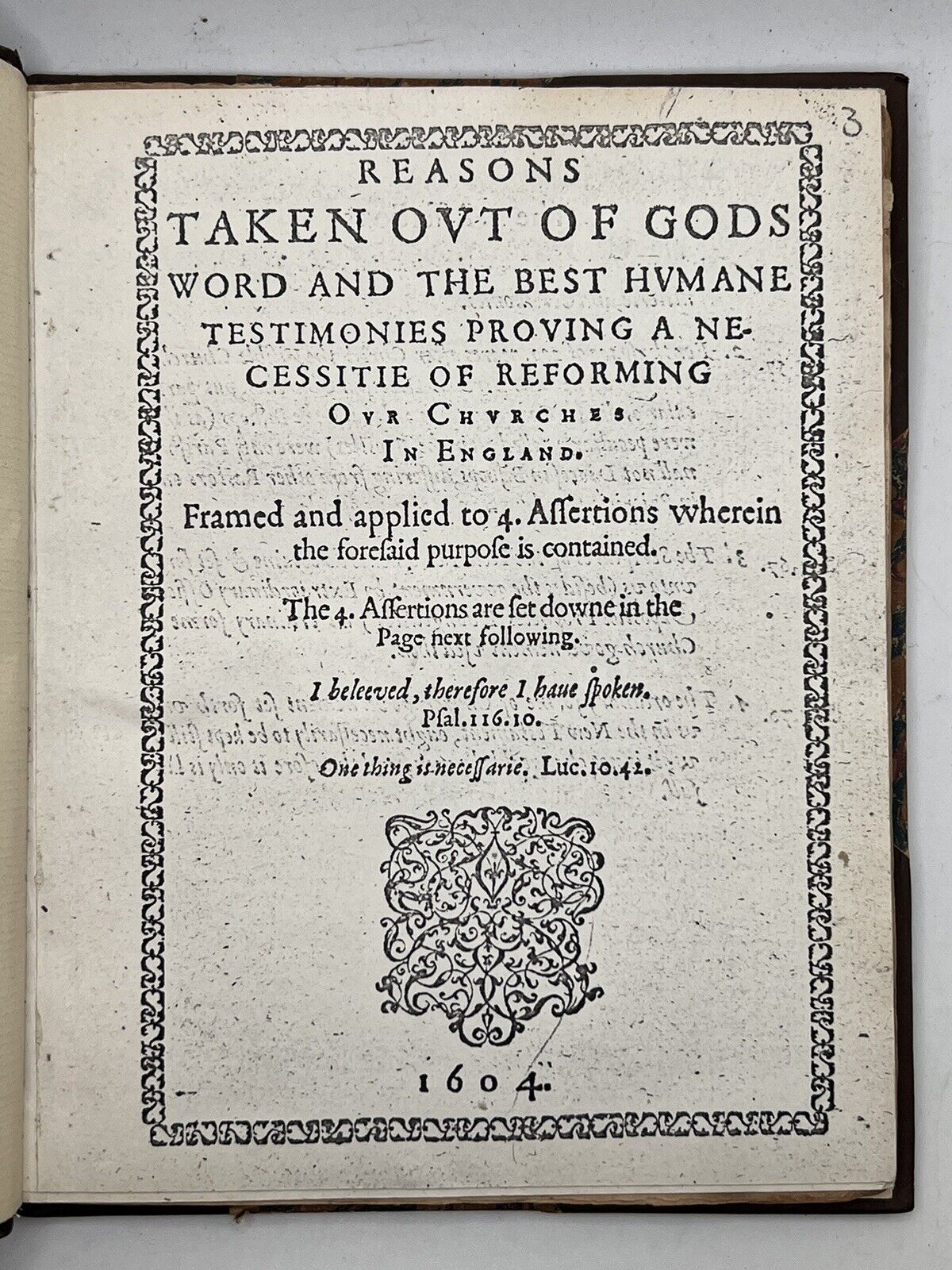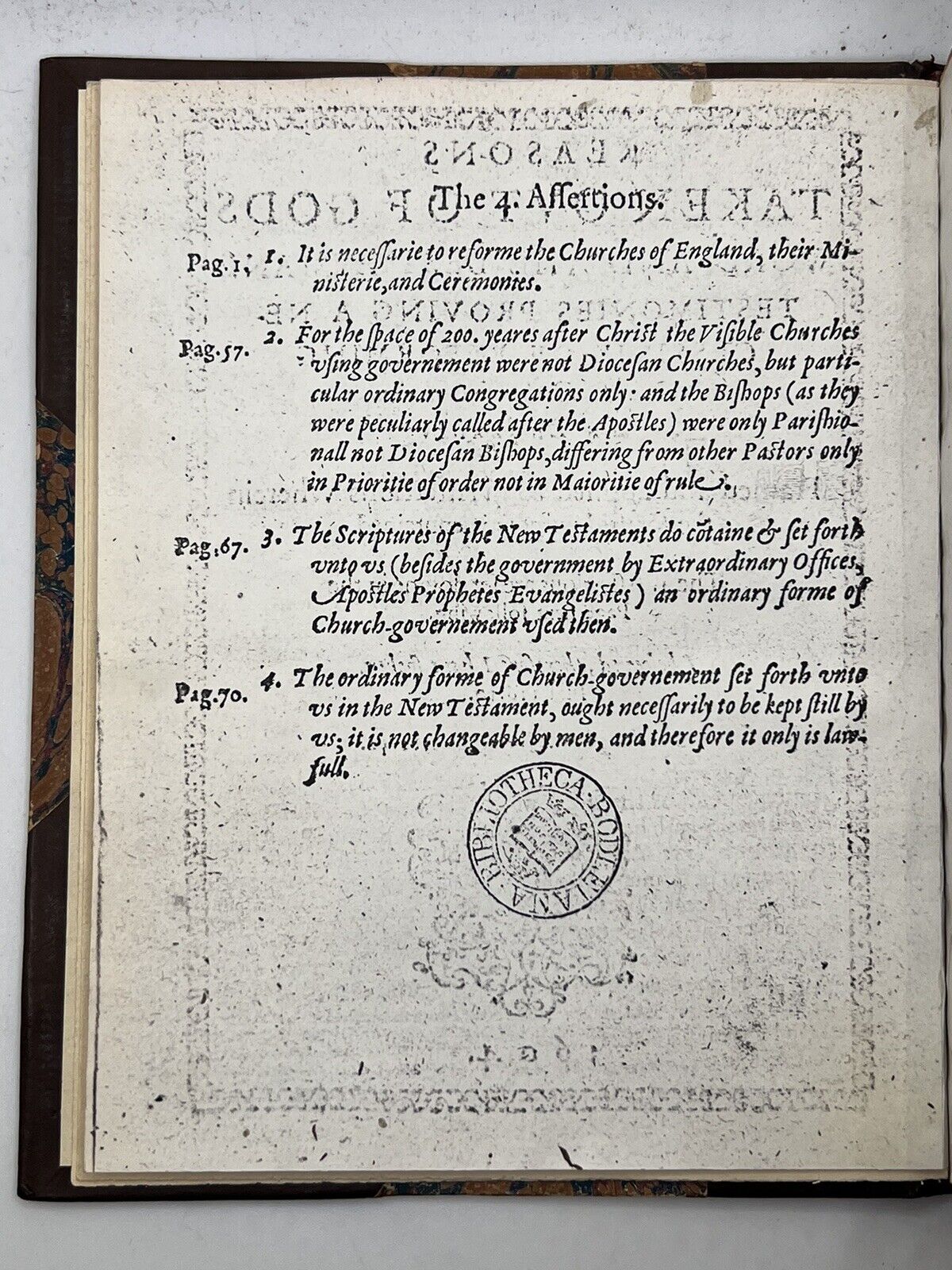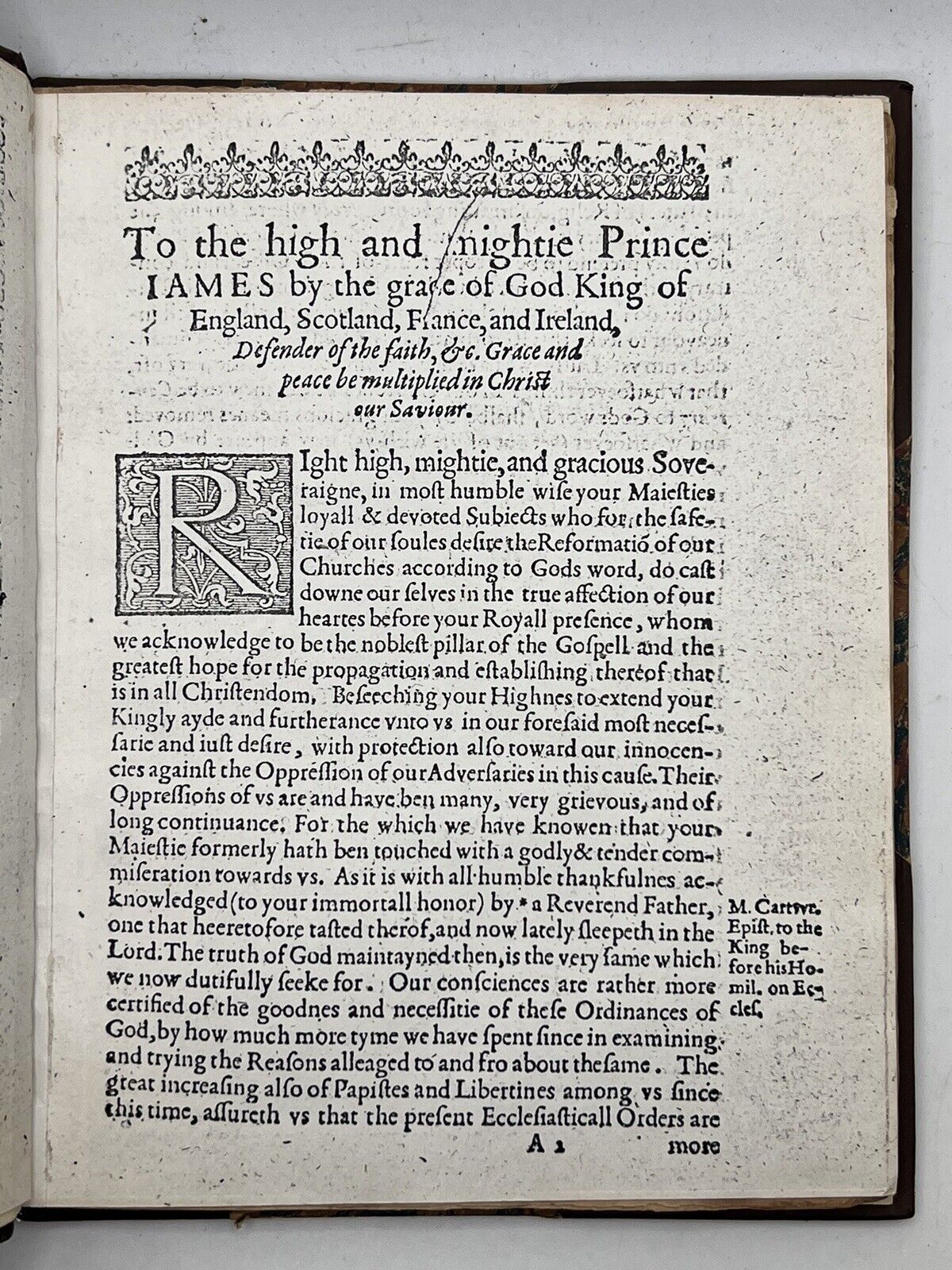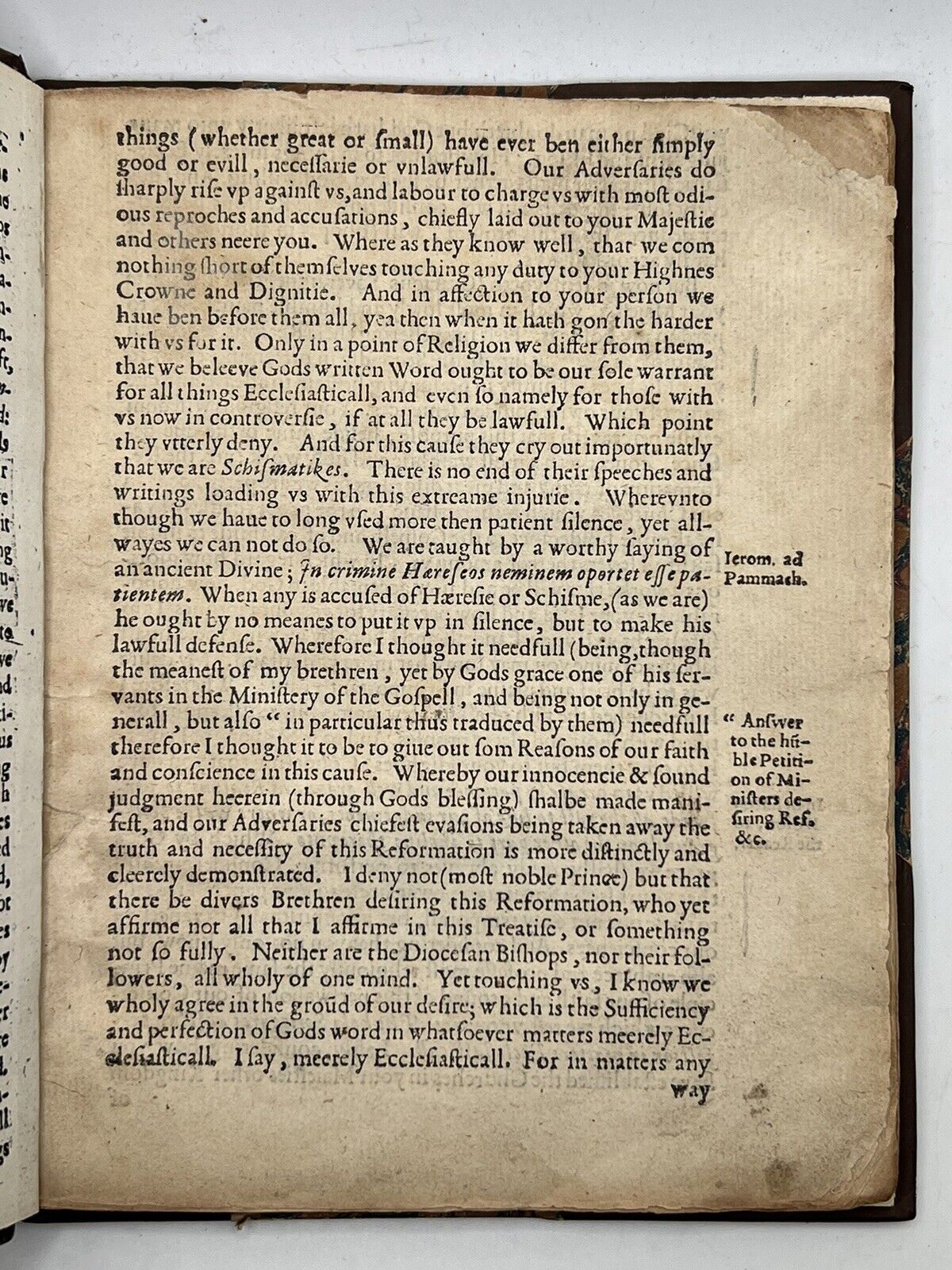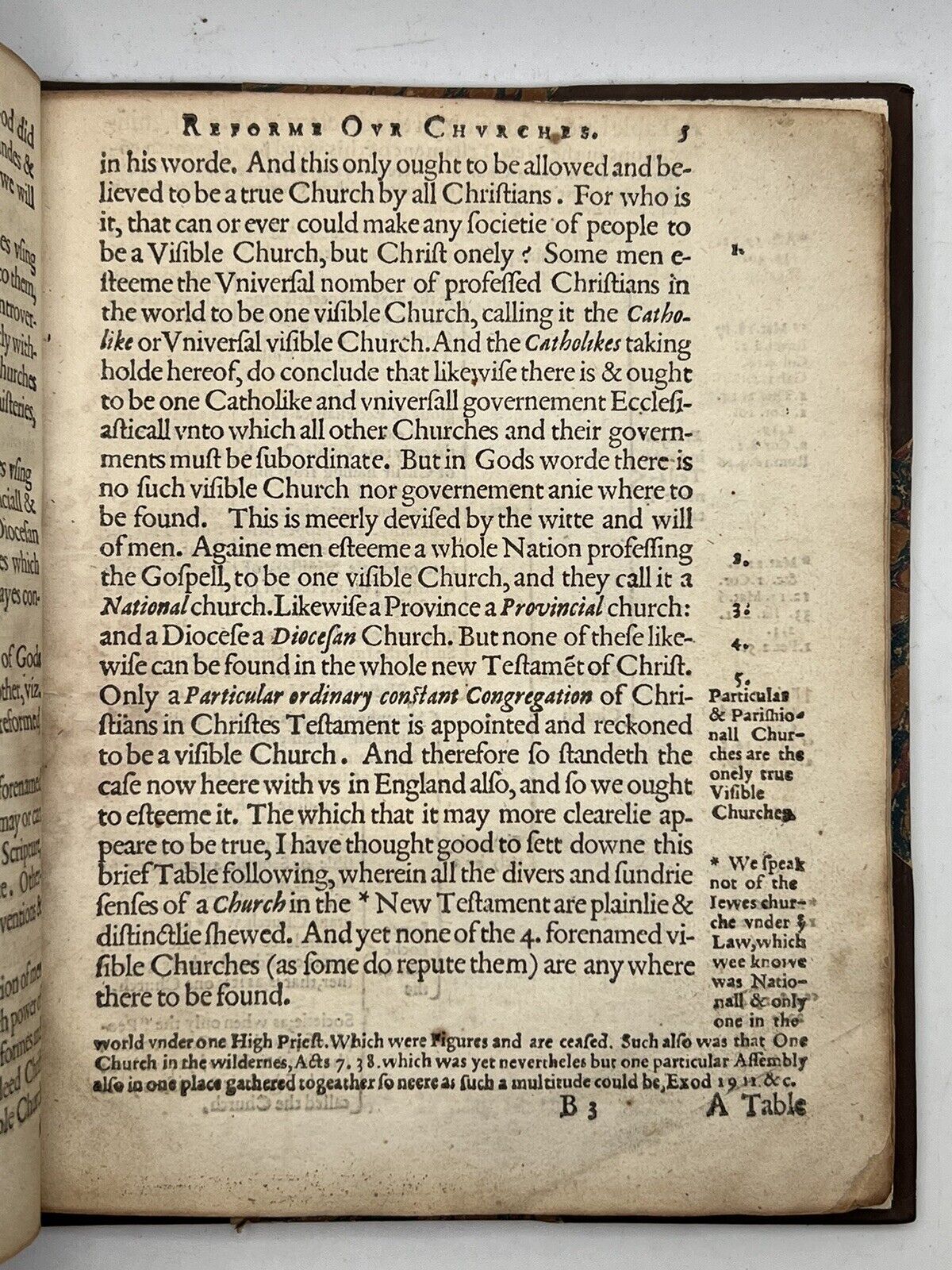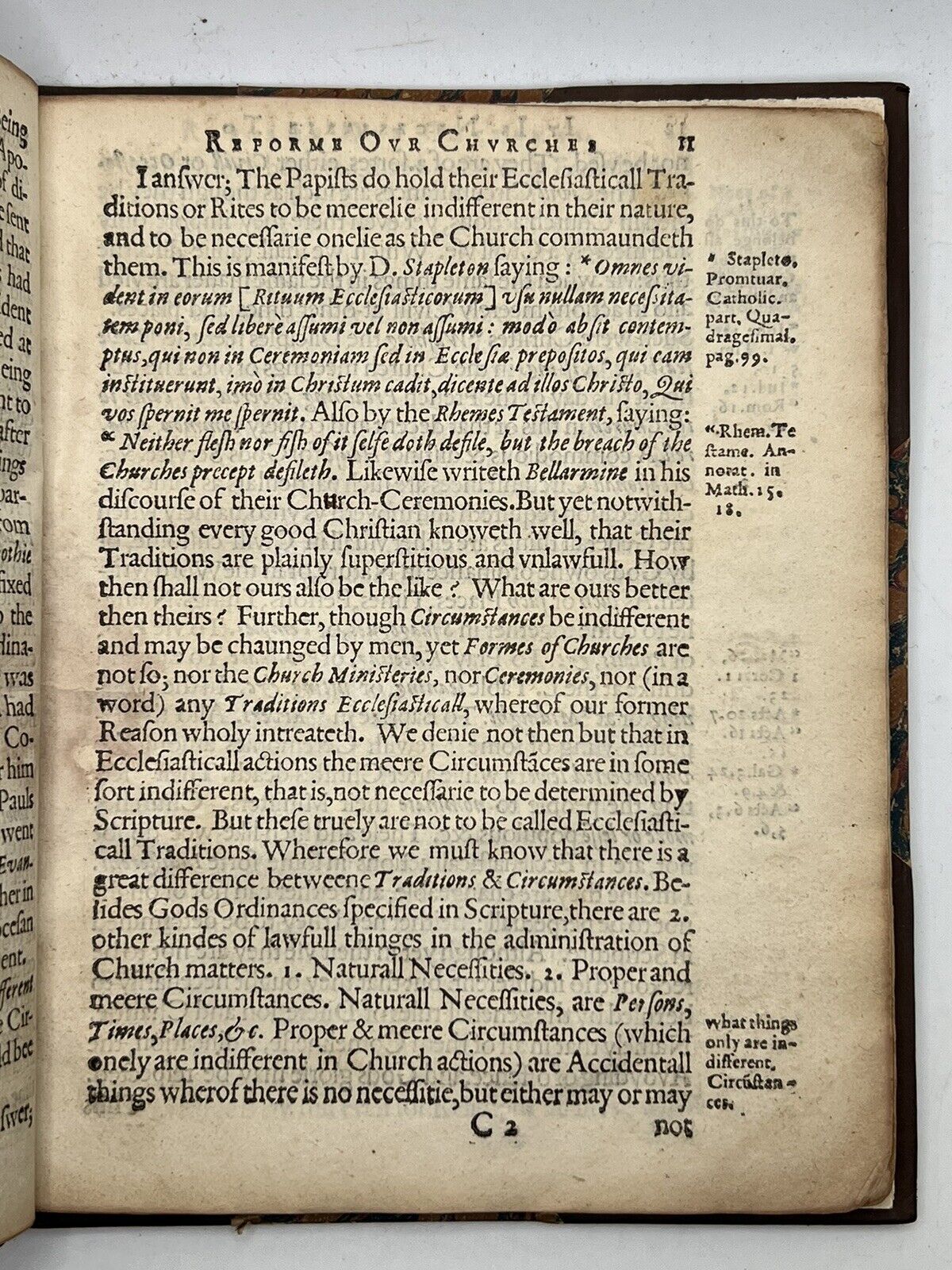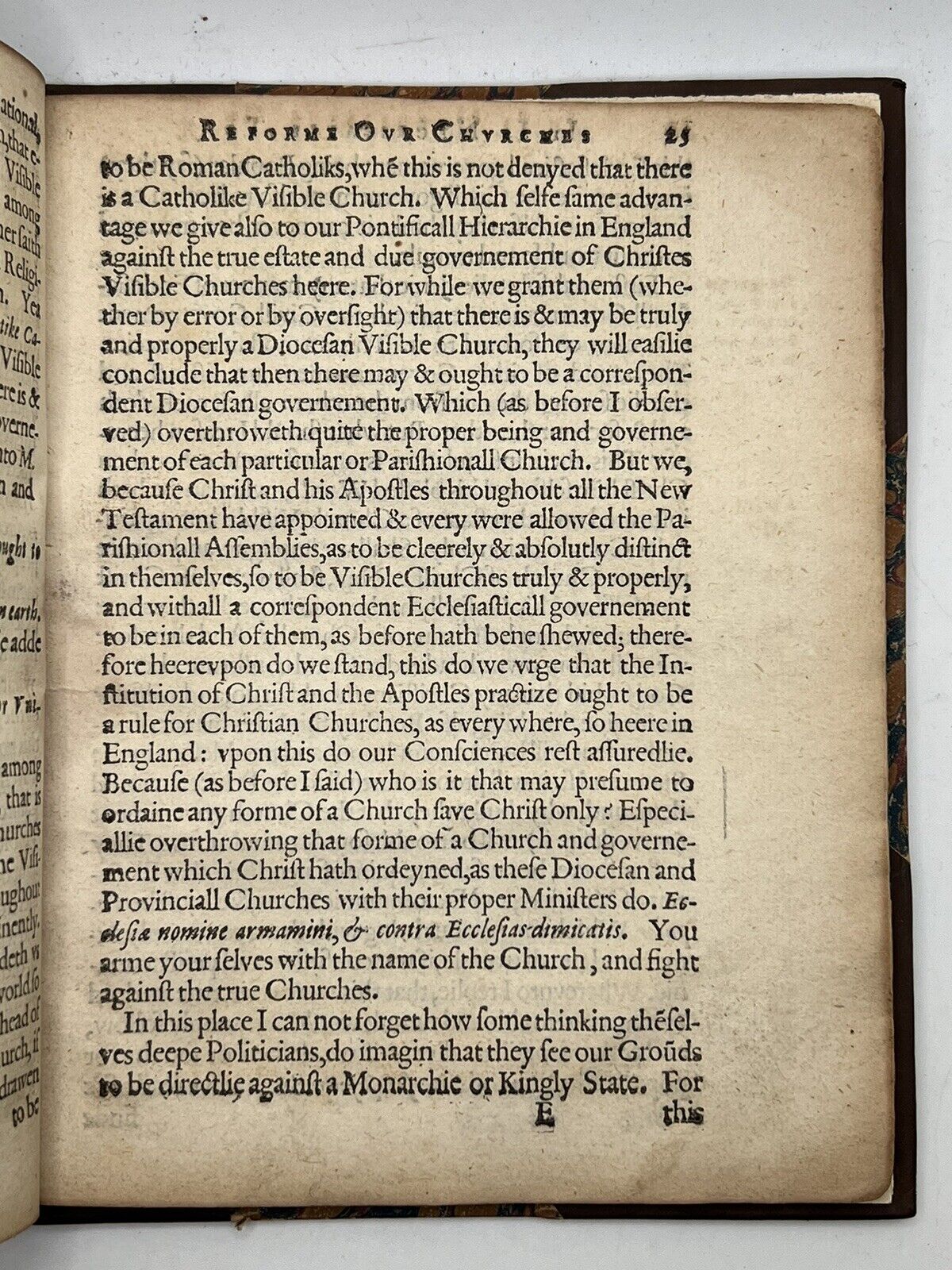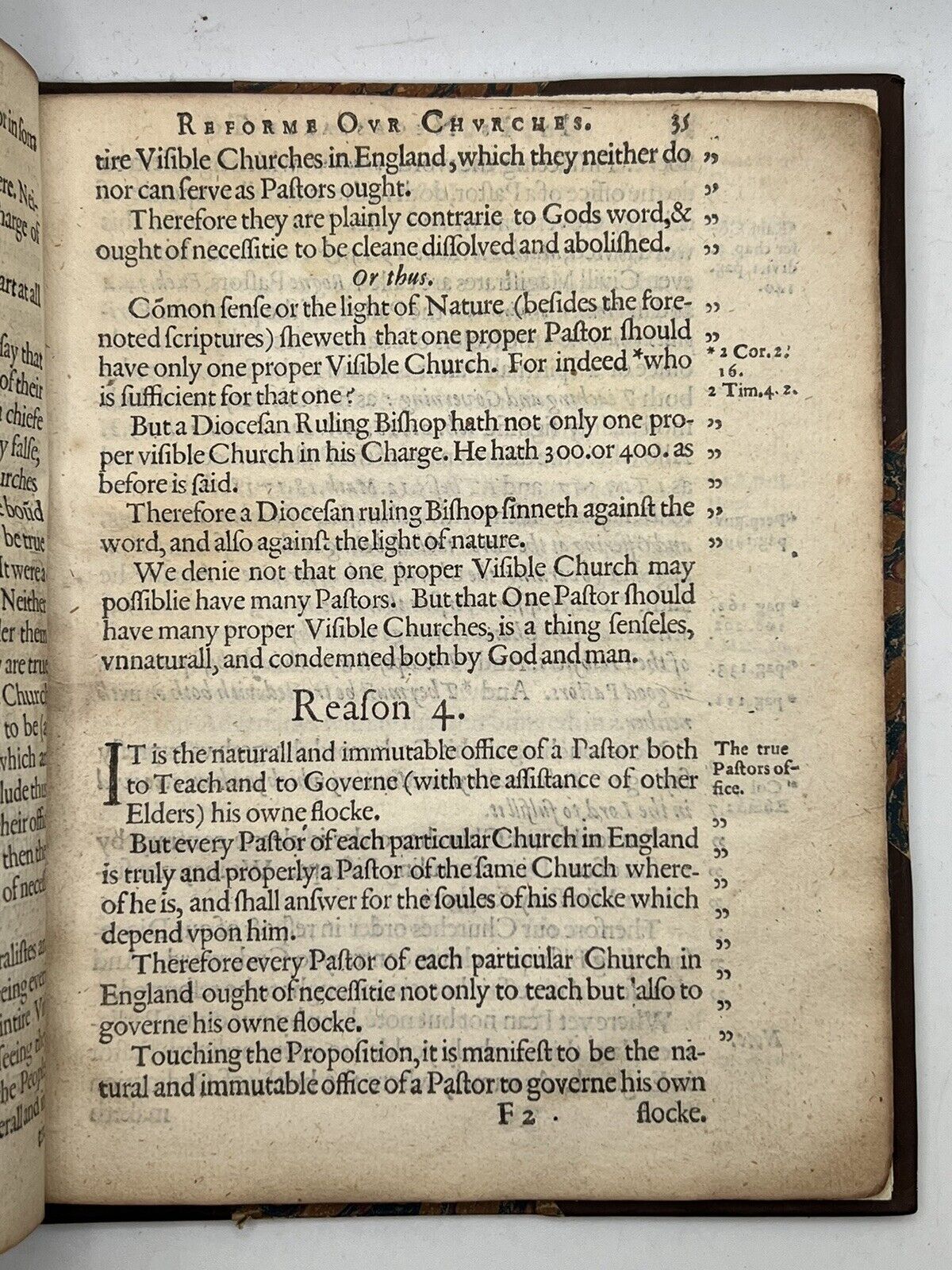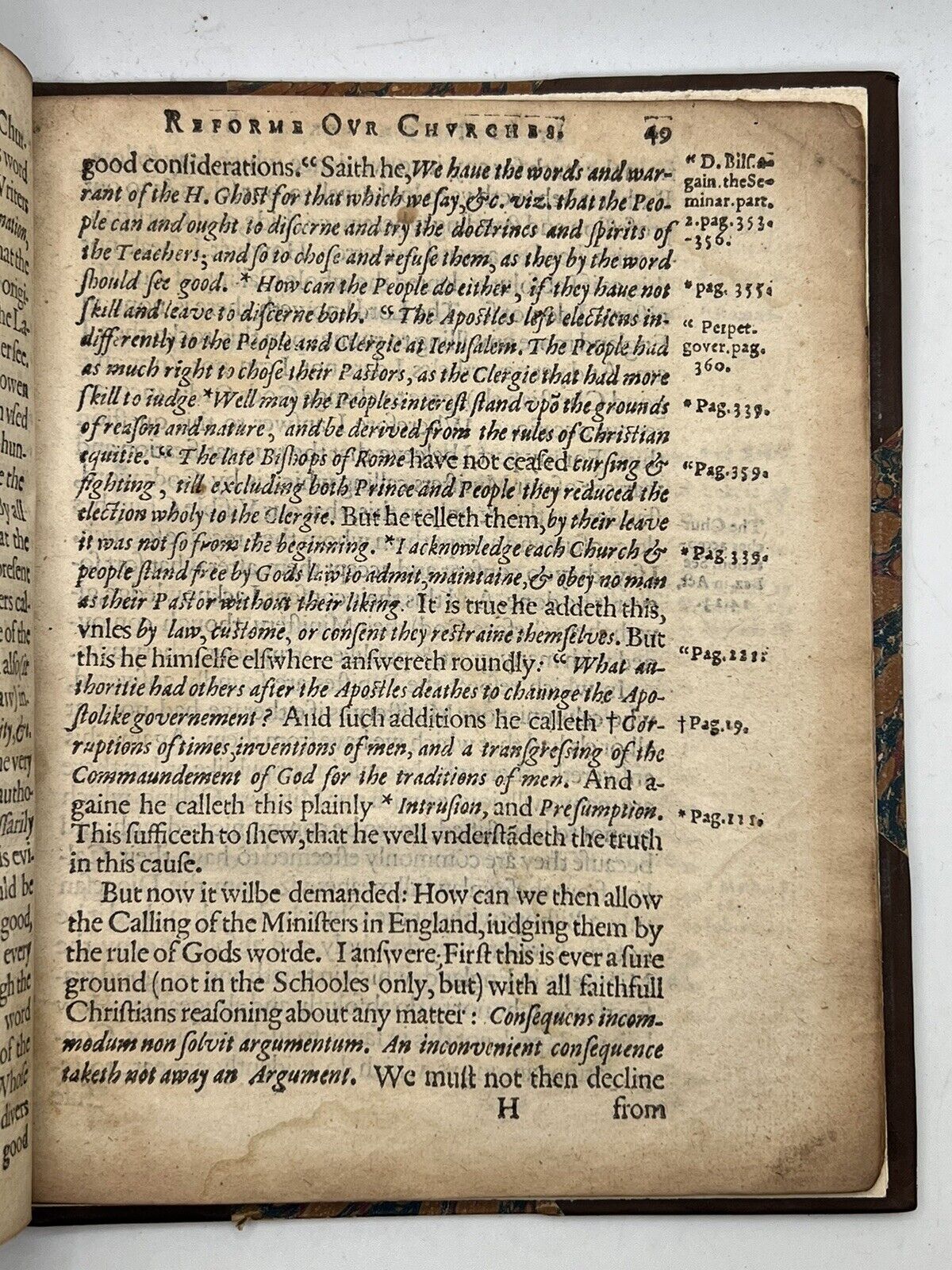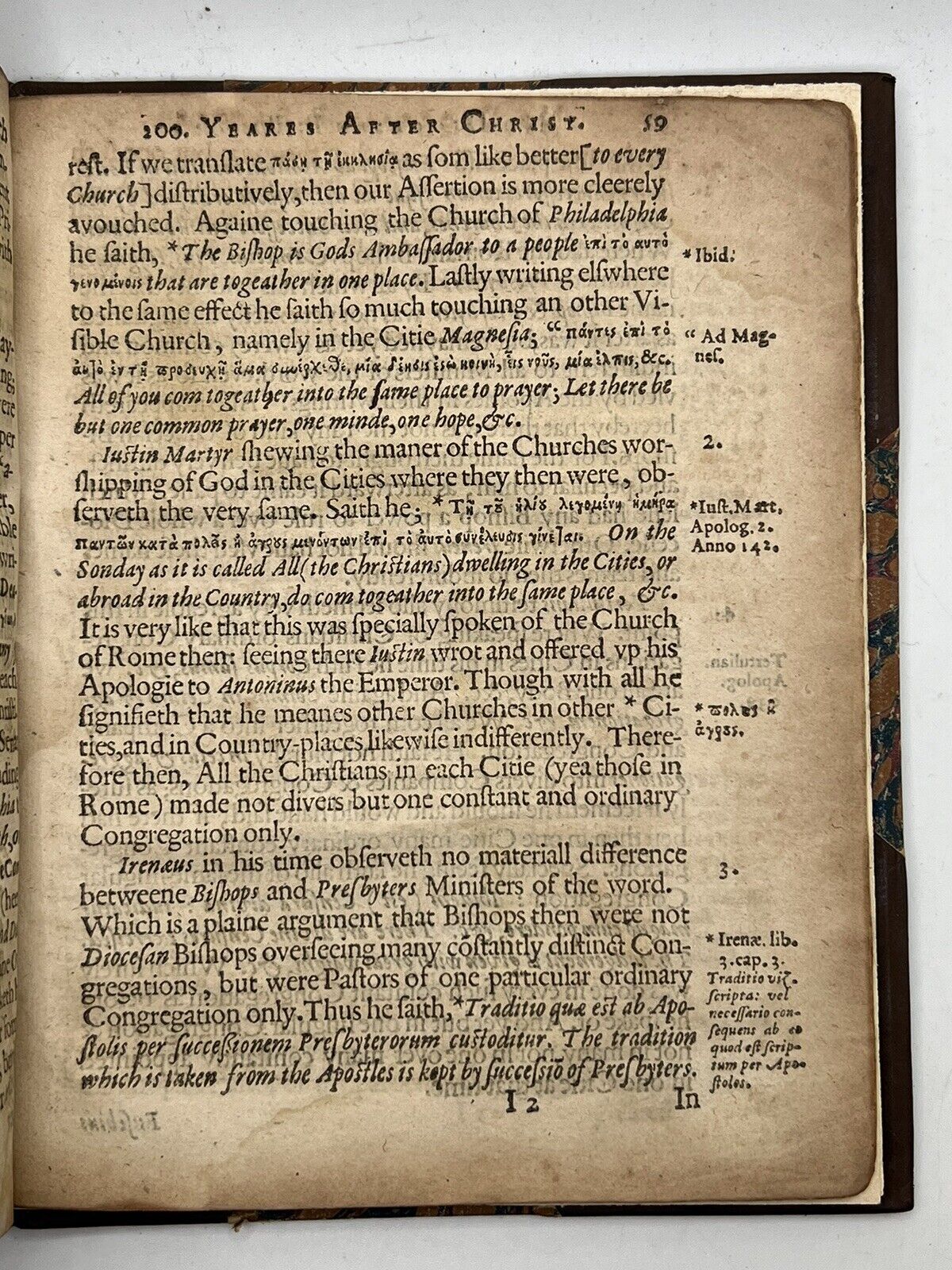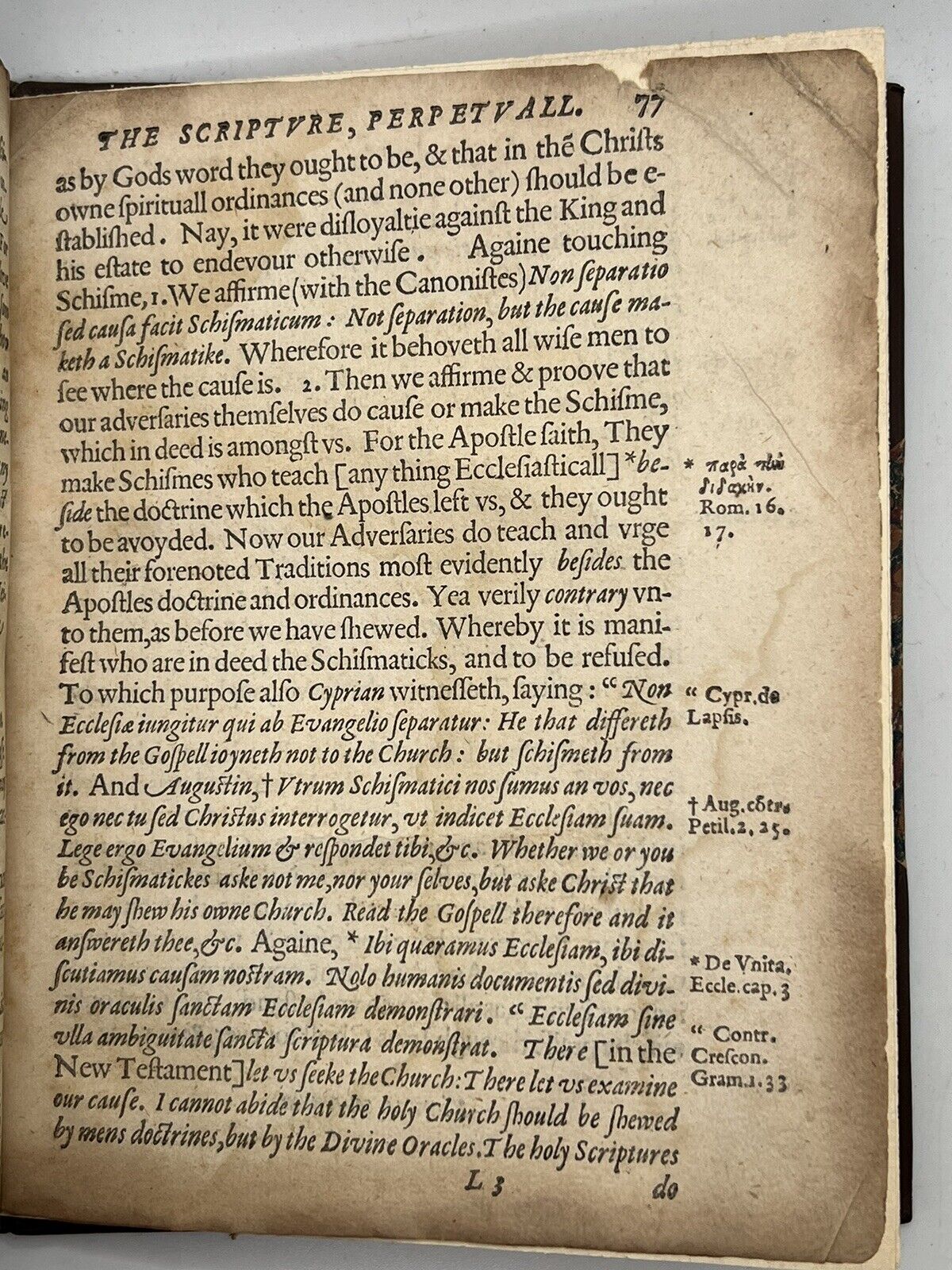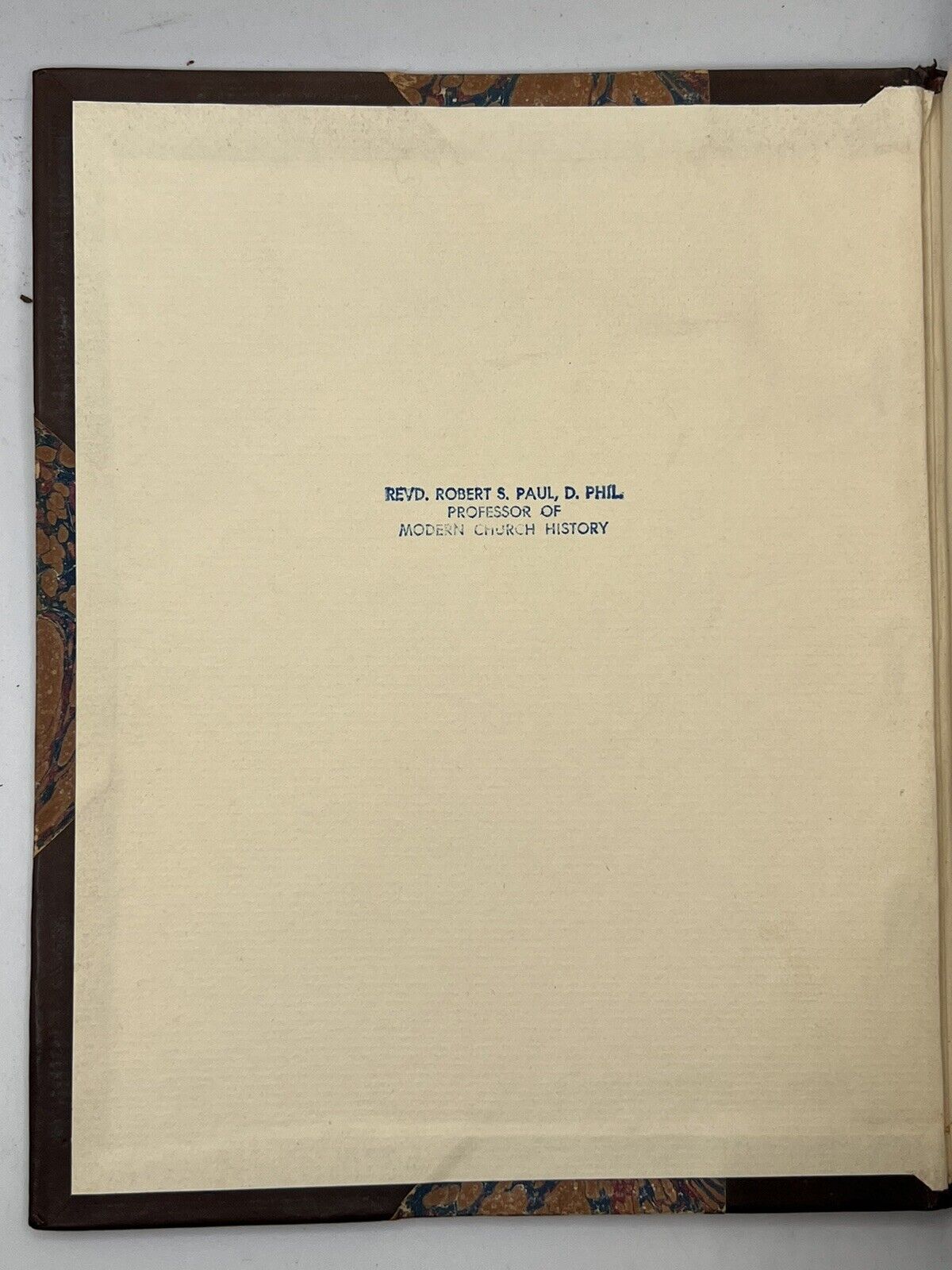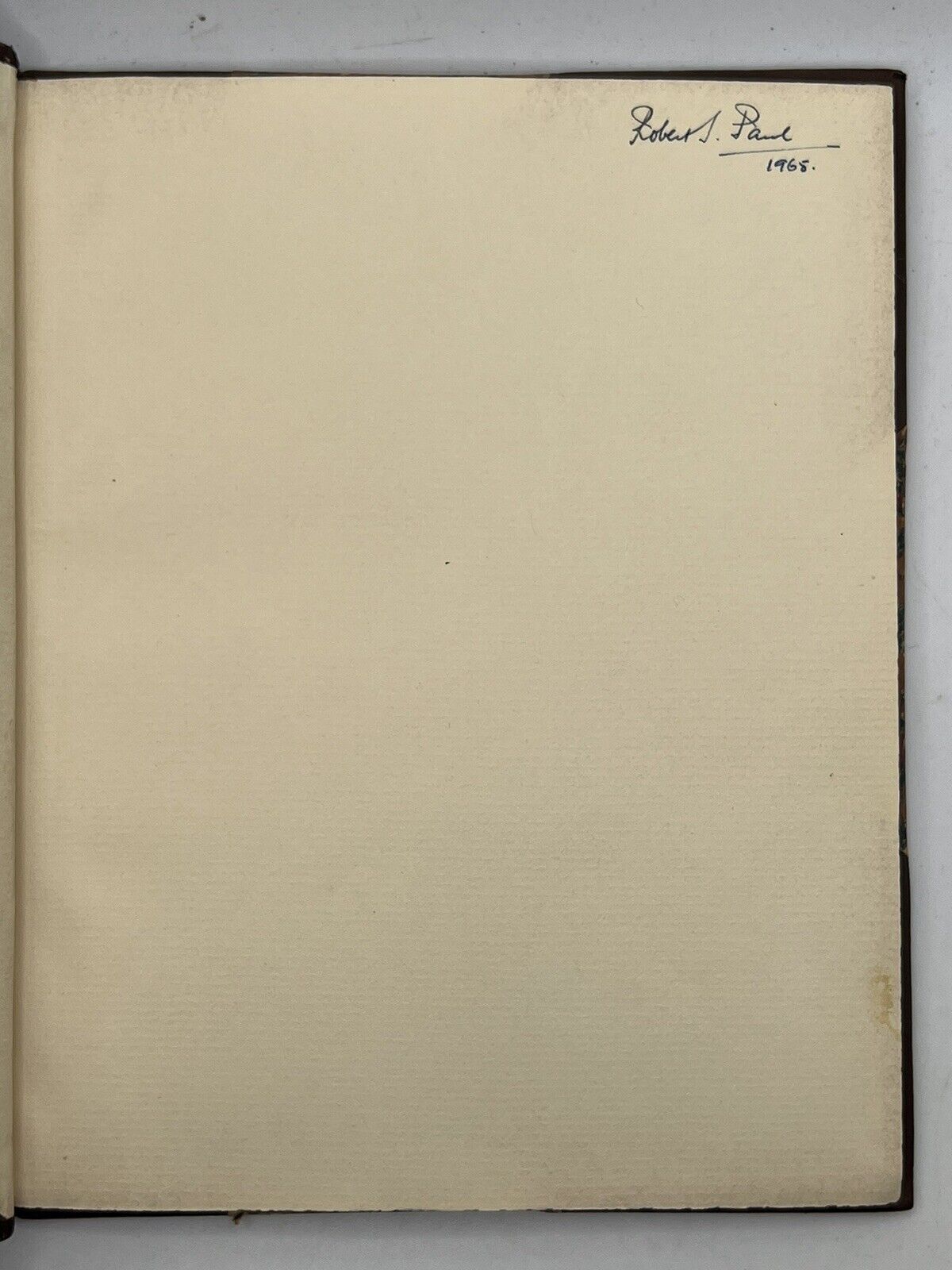Reasons Taken Out of God's Word by Henry Jacob 1604 First Edition
Reasons Taken Out of God's Word by Henry Jacob 1604 First Edition
Couldn't load pickup availability
Reasons Taken Out of God's Word And The Best Humane Testimonies Proving A Necessitie of Reforming Our Churches in England. Framed and applied to 4. Assertions wherein the foresaid purpose is contained. The 4. Assertions are set downe in the Page next following. 1604, 8vo.
THE EXTREMELY RARE FIRST EDITION ADVOCATING FOR CHURCH REFORM BY HENRY JACOB THAT RESULTED IN HIS IMPRISONMENT AND EXILE - THE ONLY KNOWN COPY IN PRIVATE HANDS.
-------------------
Henry Jacob (1563–1624) was an English clergyman with Calvinist views. He founded the first true congregational church in England and is known for asserting the autonomy of the church, and advocated for ecclesiastical government without bishops - for the church and state to be united. His views challenged the hierarchy of the Church of England and led to his imprisonment and exile.
Henry Jacob's most important and rarest work, here offered for sale, emphasises the Protestant doctrine of Sola Scriptura and suggests that the Church of England, in its ecclesiastical hierarchy, was causing spiritual harm and that this version of the Church is unscriptural. Jacob suggests this necessitates a complete reform of the Church system because "For the space of 200 years after Christ the Visible Churches using government were not Diocesan Churches, but particular ordinary Congregations only and the Bishops (as they were peculiarly called after the Apostles) were only Parishionall not Diocesan Bishops, differing from other Pastors only in Prioritie of order not in Majoritie of rule" (A1 verso in the book assertion 2). Naturally, the printing of this book led to Jacob's imprisonment for eight months where he subsequently fled to Holland and joined a community of English exiles and established himself as a leader among semi-separatists. The harsh response to this work is illustrative of King James I's precarious position with the various dissenting voices, and is very interesting in being published prior to the King James Bible, etc.
This book laid the foundation for Puritan congregationalism and therefore movements like the Particular Baptists, and one can clearly see the influence in today's age with movements such as Non-Denominational Evangelical Charismatic Churches which advocate a similar theology with the Priesthood of all believers, a lack of ecclesiastical hierarchy, etc, as written about by modern theologians such as Frank Viola in Reimagining Church (2008) which is surprisingly similar.
This book was suppressed by King James I and as such, copies are extremely rare. A very small original print run coupled with a limited original audience and active suppression made the survival of copies of this title near impossible. The fact that any copies survive at all is more a fortunate accident of history. The survival of this copy is simply remarkable, despite the first two leaves being provided in facsimile. It makes a lot of sense that the title page is lacking for this copy, indeed, in the original title page, the printer, Richard Schilders, didn't even dare put his name to the edition, despite his Puritan sympathies. This copy quite possibly only survives precisely because of the lacking title page.
WorldCat records the survival of only 13 copies worldwide, only 3 of which remain in the UK, the other 10 being in Germany. This is the only copy we can trace that has ever come to the open market. It is extremely rare, and this is the only opportunity one is ever likely to have at its acquisition.
-------------------
Size: 143 x 179 mm (approx.)
Condition:
[(2), [A¹–²], A³–L³, (2)]
20th century half calf over marbled paper-backed boards, with the title tooled in gilt horizontally to the spine ("Jacob - Reasons"). The spine is slightly sunned, and there is minor shelf wear; however, the binding remains in very good to near fine condition, with both boards securely attached, no shelf lean, and the structure sound. The boards bow outwards slightly due to the small width of the page block.
A 20th-century ownership stamp is present on the front pastedown, with a corresponding ownership inscription on the verso of the ffep, dated 1968, indicating the rebinding was completed on or before that date. The endpapers have been replaced, as have leaves A1–A2 and are provided in facsimile (the title page and the first 2pp of the somewhat ironic dedication to King James I). The text block signatures are uninterrupted up to L3 (p. 78), where the text ends, though WorldCat entries suggest the work should extend to 83 pages. It is therefore possibly lacking three final leaves, perhaps an index/errata, though we could not locate a digital copy to confirm this. The signatures up to that point are grouped in fours.
The text block is fully legible but shows typical dampstaining and minor losses to some leaf corners. These losses do not affect the text but do catch some page numbers. There are a few contemporary manuscript corrections within the text. Despite its imperfections, this is a remarkable survivor of a historically significant and genuinely fascinating book.
[ESTC S120955; STC 14338; OCLC 216891353, 1372005450].


